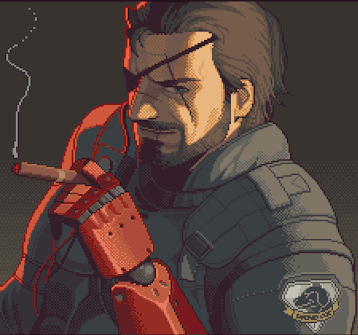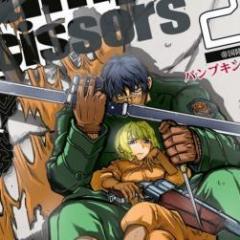-
Posts
3609 -
Joined
-
Last visited
-
Days Won
36
Reputation Activity
-
 Fred the Barber reacted to Zakamutt in Biman1 tl is shit confirmed
Fred the Barber reacted to Zakamutt in Biman1 tl is shit confirmed
On one hand, from a technical standpoint this totally matters. On the other, from a meme standpoint nobody knows what the fuck a dot-space-I is and the effect is very similar. In conclusion, biman totally has double spaces despite it not having double spaces.
-
 Fred the Barber reacted to Kenshin_sama in Quick Review: Kokoro Connect LN
Fred the Barber reacted to Kenshin_sama in Quick Review: Kokoro Connect LN
Oh nice! Kinda wish it had a physical release so I could read it before bed, but I am happy it has a translation at all. I still have a lot of fond memories of Kokoro Connect, and I'm excited to finally be able to enjoy its source material.
Oh and I think you accidentally wrote Inaba when you most definitely meant Iori. No big deal; it happens to the best of us.
-
 Fred the Barber reacted to Kenshin_sama in Phantom Trigger vol. 5 is out!
Fred the Barber reacted to Kenshin_sama in Phantom Trigger vol. 5 is out!
Is that why you left it out of your title? Smart move, actually. I'd be much more likely to scroll past your blog entry if you did since I kinda lost interest in the main VN.
-
 Fred the Barber got a reaction from Pomelo in How good should your translation be before editing?
Fred the Barber got a reaction from Pomelo in How good should your translation be before editing?
You're much better off just getting someone who knows what they're doing translating it in the first place. Translation checking is a luxury some localization projects have, but at least in fan translations, it's largely there to compensate for the fact that most of the people working in fan translations just aren't very good translators. 99% of the time, if they were passable at translating, they'd get out of fan translation and translate for a living.
If the translation is best described as garble, no editor can save it short of going to check every translated line and effectively redoing the work. I think what you're saying here is predicated on a mistaken assumption people often make when talking about localization: that there's some sort pidgin language between Japanese and English (let's call it Fantranslationese). Bizarrely, some people not only believe in the existence of Fantranslationese, but they have even convinced themselves that they prefer to read Fantranslationese over English. But make no mistake: Fantranslationese is not a language, and it does not communicate anything like what the original Japanese did and what a decent English translation would. Fantranslationese is a pale shadow of a language, and an editor can only do so much to fix a "translation" attempting to use it short of retranslating the work because the editor otherwise doesn't actually get an experience like reading the original. Relying on editors to inject flair into a Fantranslationese script means you lost all the flair that was in the original. You're certainly not there yet, but you're well on your way to writing fanfiction instead of a translation, if you go this route.
Editors should be polishing a translation, smoothing out rough edges and ensuring consistency. They absolutely should be fixing the translator's mistakes, always with the aid of the translator, because the editor sees the work differently and therefore is going to rarely find translation mistakes due to their different view. This is a given especially because of how ambiguous and context-dependent Japanese is.
I never want to work on any project with a translator who believes this.
-
 Fred the Barber got a reaction from Keisuke in How good should your translation be before editing?
Fred the Barber got a reaction from Keisuke in How good should your translation be before editing?
You're much better off just getting someone who knows what they're doing translating it in the first place. Translation checking is a luxury some localization projects have, but at least in fan translations, it's largely there to compensate for the fact that most of the people working in fan translations just aren't very good translators. 99% of the time, if they were passable at translating, they'd get out of fan translation and translate for a living.
If the translation is best described as garble, no editor can save it short of going to check every translated line and effectively redoing the work. I think what you're saying here is predicated on a mistaken assumption people often make when talking about localization: that there's some sort pidgin language between Japanese and English (let's call it Fantranslationese). Bizarrely, some people not only believe in the existence of Fantranslationese, but they have even convinced themselves that they prefer to read Fantranslationese over English. But make no mistake: Fantranslationese is not a language, and it does not communicate anything like what the original Japanese did and what a decent English translation would. Fantranslationese is a pale shadow of a language, and an editor can only do so much to fix a "translation" attempting to use it short of retranslating the work because the editor otherwise doesn't actually get an experience like reading the original. Relying on editors to inject flair into a Fantranslationese script means you lost all the flair that was in the original. You're certainly not there yet, but you're well on your way to writing fanfiction instead of a translation, if you go this route.
Editors should be polishing a translation, smoothing out rough edges and ensuring consistency. They absolutely should be fixing the translator's mistakes, always with the aid of the translator, because the editor sees the work differently and therefore is going to rarely find translation mistakes due to their different view. This is a given especially because of how ambiguous and context-dependent Japanese is.
I never want to work on any project with a translator who believes this.
-
 Fred the Barber got a reaction from Kenshin_sama in How good should your translation be before editing?
Fred the Barber got a reaction from Kenshin_sama in How good should your translation be before editing?
You're much better off just getting someone who knows what they're doing translating it in the first place. Translation checking is a luxury some localization projects have, but at least in fan translations, it's largely there to compensate for the fact that most of the people working in fan translations just aren't very good translators. 99% of the time, if they were passable at translating, they'd get out of fan translation and translate for a living.
If the translation is best described as garble, no editor can save it short of going to check every translated line and effectively redoing the work. I think what you're saying here is predicated on a mistaken assumption people often make when talking about localization: that there's some sort pidgin language between Japanese and English (let's call it Fantranslationese). Bizarrely, some people not only believe in the existence of Fantranslationese, but they have even convinced themselves that they prefer to read Fantranslationese over English. But make no mistake: Fantranslationese is not a language, and it does not communicate anything like what the original Japanese did and what a decent English translation would. Fantranslationese is a pale shadow of a language, and an editor can only do so much to fix a "translation" attempting to use it short of retranslating the work because the editor otherwise doesn't actually get an experience like reading the original. Relying on editors to inject flair into a Fantranslationese script means you lost all the flair that was in the original. You're certainly not there yet, but you're well on your way to writing fanfiction instead of a translation, if you go this route.
Editors should be polishing a translation, smoothing out rough edges and ensuring consistency. They absolutely should be fixing the translator's mistakes, always with the aid of the translator, because the editor sees the work differently and therefore is going to rarely find translation mistakes due to their different view. This is a given especially because of how ambiguous and context-dependent Japanese is.
I never want to work on any project with a translator who believes this.
-
 Fred the Barber got a reaction from Infernoplex in A Short And Sweet Style Guide For VN Editing
Fred the Barber got a reaction from Infernoplex in A Short And Sweet Style Guide For VN Editing
Regarding asterisked sound effects, I kind of used to think the same thing: what am I supposed to do with this weird sound anyway? So I used them. Then I looked back and the script was just littered with them. They were everywhere, and they really interrupted the flow of reading. So, I went through in one day and gutted them out of the script, and it was like a breath of fresh air. Since then, I came around to the conclusion in the guide, that it's best to just universally avoid the asterisk thing, and judging from the recent official localizations I've read, I'm not alone on that opinion. I only see them in fan TLs nowadays, and they're always jarring, especially in speech lines. Once you force yourself to avoid them, you find both that it's not really all that hard and that it massively pays off in terms of readability.
-
 Fred the Barber got a reaction from Decay in How good should your translation be before editing?
Fred the Barber got a reaction from Decay in How good should your translation be before editing?
You're much better off just getting someone who knows what they're doing translating it in the first place. Translation checking is a luxury some localization projects have, but at least in fan translations, it's largely there to compensate for the fact that most of the people working in fan translations just aren't very good translators. 99% of the time, if they were passable at translating, they'd get out of fan translation and translate for a living.
If the translation is best described as garble, no editor can save it short of going to check every translated line and effectively redoing the work. I think what you're saying here is predicated on a mistaken assumption people often make when talking about localization: that there's some sort pidgin language between Japanese and English (let's call it Fantranslationese). Bizarrely, some people not only believe in the existence of Fantranslationese, but they have even convinced themselves that they prefer to read Fantranslationese over English. But make no mistake: Fantranslationese is not a language, and it does not communicate anything like what the original Japanese did and what a decent English translation would. Fantranslationese is a pale shadow of a language, and an editor can only do so much to fix a "translation" attempting to use it short of retranslating the work because the editor otherwise doesn't actually get an experience like reading the original. Relying on editors to inject flair into a Fantranslationese script means you lost all the flair that was in the original. You're certainly not there yet, but you're well on your way to writing fanfiction instead of a translation, if you go this route.
Editors should be polishing a translation, smoothing out rough edges and ensuring consistency. They absolutely should be fixing the translator's mistakes, always with the aid of the translator, because the editor sees the work differently and therefore is going to rarely find translation mistakes due to their different view. This is a given especially because of how ambiguous and context-dependent Japanese is.
I never want to work on any project with a translator who believes this.
-
 Fred the Barber got a reaction from Beichuuka in How good should your translation be before editing?
Fred the Barber got a reaction from Beichuuka in How good should your translation be before editing?
You're much better off just getting someone who knows what they're doing translating it in the first place. Translation checking is a luxury some localization projects have, but at least in fan translations, it's largely there to compensate for the fact that most of the people working in fan translations just aren't very good translators. 99% of the time, if they were passable at translating, they'd get out of fan translation and translate for a living.
If the translation is best described as garble, no editor can save it short of going to check every translated line and effectively redoing the work. I think what you're saying here is predicated on a mistaken assumption people often make when talking about localization: that there's some sort pidgin language between Japanese and English (let's call it Fantranslationese). Bizarrely, some people not only believe in the existence of Fantranslationese, but they have even convinced themselves that they prefer to read Fantranslationese over English. But make no mistake: Fantranslationese is not a language, and it does not communicate anything like what the original Japanese did and what a decent English translation would. Fantranslationese is a pale shadow of a language, and an editor can only do so much to fix a "translation" attempting to use it short of retranslating the work because the editor otherwise doesn't actually get an experience like reading the original. Relying on editors to inject flair into a Fantranslationese script means you lost all the flair that was in the original. You're certainly not there yet, but you're well on your way to writing fanfiction instead of a translation, if you go this route.
Editors should be polishing a translation, smoothing out rough edges and ensuring consistency. They absolutely should be fixing the translator's mistakes, always with the aid of the translator, because the editor sees the work differently and therefore is going to rarely find translation mistakes due to their different view. This is a given especially because of how ambiguous and context-dependent Japanese is.
I never want to work on any project with a translator who believes this.
-
 Fred the Barber got a reaction from Asonn in How good should your translation be before editing?
Fred the Barber got a reaction from Asonn in How good should your translation be before editing?
You're much better off just getting someone who knows what they're doing translating it in the first place. Translation checking is a luxury some localization projects have, but at least in fan translations, it's largely there to compensate for the fact that most of the people working in fan translations just aren't very good translators. 99% of the time, if they were passable at translating, they'd get out of fan translation and translate for a living.
If the translation is best described as garble, no editor can save it short of going to check every translated line and effectively redoing the work. I think what you're saying here is predicated on a mistaken assumption people often make when talking about localization: that there's some sort pidgin language between Japanese and English (let's call it Fantranslationese). Bizarrely, some people not only believe in the existence of Fantranslationese, but they have even convinced themselves that they prefer to read Fantranslationese over English. But make no mistake: Fantranslationese is not a language, and it does not communicate anything like what the original Japanese did and what a decent English translation would. Fantranslationese is a pale shadow of a language, and an editor can only do so much to fix a "translation" attempting to use it short of retranslating the work because the editor otherwise doesn't actually get an experience like reading the original. Relying on editors to inject flair into a Fantranslationese script means you lost all the flair that was in the original. You're certainly not there yet, but you're well on your way to writing fanfiction instead of a translation, if you go this route.
Editors should be polishing a translation, smoothing out rough edges and ensuring consistency. They absolutely should be fixing the translator's mistakes, always with the aid of the translator, because the editor sees the work differently and therefore is going to rarely find translation mistakes due to their different view. This is a given especially because of how ambiguous and context-dependent Japanese is.
I never want to work on any project with a translator who believes this.
-
 Fred the Barber reacted to frc_ in I Hate Big Backs and I Can Not Lie
Fred the Barber reacted to frc_ in I Hate Big Backs and I Can Not Lie
Some examples from the project I'm working on to further illustrate the point:
Literal translation: "Yeah... Who knows as of when we'll be able to become that kind of big person..."
This version only gets the point across with difficulty. Instead, I wrote: "Yeah... Who knows how much time we'll need to become as dependable as him."
"That's probably why it took time to properly digest the bigness of adults inside our chests..."
This one sounds almost comical in English. I changed it to "That must be why it took us so long to realize how thoughtful adults are."
I always assumed it was common knowledge that translation is about carrying over meaning, not words. Imagine my incredulity when I learned that some people actually prefer the latter.
-
 Fred the Barber got a reaction from Mr Poltroon in A Short And Sweet Style Guide For VN Editing
Fred the Barber got a reaction from Mr Poltroon in A Short And Sweet Style Guide For VN Editing
I haven't forgotten you either, @Mr Poltroon, I've just been ignoring you since you asked about stuff that was harder to answer.
For starters, I totally agree with you that asterisked sound effects are less of an interruption than singularly complex sentence structure. Forcing the reader to go back and re-read a sentence just to try to understand what the blazes is going on when all they want is to move on to the next element in the plot is anathema to the goal of most VNs, which is, generally, to offer the straightforward entertainment of a quick jaunt through a story world, rather than the joy of ruminating on a particularly fibrous utterance.
However, *clears his throat*, I would like to point you at the hill you're about to go sliding down. It is, if I do say so myself, a slippery slope *wink*. My own personal experience with trying to use this technique was that use instantly turned to abuse *sigh*. Before too long, the dialogue was filled with all sorts of things that had no business being there; they weren't sounds being made by a speaker at all, but rather related actions which, if they needed to be communicated, belonged more properly in a narration line, and if none was available, why then the dialogue itself would have to carry the meaning *shakes his head*. It simply doesn't make sense for characters to be communicating quite so much in what is, ultimately, a poor excuse for narration *nod*.
In a nutshell, I found that the technique simply did my script more harm than it did my script good. The same is true of the use of italics in scripts I've read: I have seen them used only once that I can recall, in an official translation, and while once or twice they were helpful, much more often they were completely unneeded and simply served to call attention to themselves and look out of place. When a tool causes you more harm than it does you good, it's better to simply force yourself to throw it out and work under tighter constraints. Art has always and will always flourish under constraints, and I personally have not found it particularly onerous to go without this one tool; on the contrary, I've relished the change.
Aside from their usage to introduce lists of things, you can also use a colon in place of a semi-colon when the half of a sentence after the colon is more like an illumination/rephrasing of some part of the first half, rather than a separate, related, independent clause. It's kind of an advanced technique, I guess? I don't mention it in the guide both because I don't have a solid handle on the rule myself and because I think it's not really a necessary thing to do (there are plenty of other options available), but I certainly do use colons this way myself from time to time without much thought. Your usage looks perfectly cromulent to me.
(I would probably always assume the former interpretation, not the latter, without some strong contextual evidence otherwise, and I would probably only find it not to be a somewhat odd utterance when coming on the heels of a request for help putting on a seatbelt.)
-
 Fred the Barber got a reaction from RedK in Eep Opp Ork Ah Ah (Editing Onomatopoeia in VNs)
Fred the Barber got a reaction from RedK in Eep Opp Ork Ah Ah (Editing Onomatopoeia in VNs)
Has to be a typo. Refer to (this one obviously on purpose):
-
 Fred the Barber reacted to Zakamutt in Parallelize And Conquer
Fred the Barber reacted to Zakamutt in Parallelize And Conquer
As a counterpoint to your part on parallel structures, the first example smells a lot like an unrefined rhetorical figure: the tricolon - the easiest example of those might be "I came, I saw, I conquered." In the words of Mark Forsyth in The Elements of Eloquence: "Tricolons sound great if the third thing is longer." I kinda feel like you're either riding a bit hard on the parallel structure part, or not explaining it in enough depth - here's a rewrite that plays with the rhythm of it in a different fashion:
She's got good grades, great looks, and she's very popular among the students.
I kinda cheated with the italics changing the meaning, not to mention removing "all" which might be significant as well, but hey I'm trying to prove a point not be useful ¯\_(ツ)_/¯. Point is, I make sure to stress very to (imperfectly, sadly) mimic the initial stress structure of each third of the sentence.
...With that said, rhetorical figures are often employed to make things memorable or stand out, which is not necessarily your aim at all times.
-
 Fred the Barber reacted to Mr Poltroon in Permit Me a Rant on the Term "Overrated"
Fred the Barber reacted to Mr Poltroon in Permit Me a Rant on the Term "Overrated"
I maintain what I said. Actual usage of "underrated" tends to stick to things that are simply not well known. Usage that is meant to say "Only 7/10? This is totally underrated!" is much more limited. This, of course, is based on my personal experiences of where I've seen them used.
So to reiterate, usage of "underrated" does not typically infuriate me because when I see it used, it's to claim too few people know about it, or tried it out. Therefore, I am not saying that underrated doesn't mean what it does, I am saying that because I hardly ever see people using it the way I don't like, I don't mind the word. On the other hand, it's incredibly rare to see someone use "overrated" in a way that's not simply saying "I don't see why people like this".
I never said my hate was quite rational. Most of it is just me disliking contrarians and party-poopers.
It's the difference between saying "I don't like X", which is clearly structured like an opinion, and "X is overrated", which is structured like a fact, and a ridiculous thing to say, at that. I also have extreme problems with "X is crap" and such. It's an issue with the way people say things, and how often they say it, more than the word itself.
This is why I'll never complain at anyone directly for using it. I won't constrict anyone's way of expressing themselves without a better reason than me just not liking it, but the fact remains that the way people phrase things as if they were facts bothers me (only if they're negative, at that) to no end, and "overrated" is one of the worst offenders, prompting my rant.
Unlike "X is bad", "X is overrated" is a more direct judgement on people.
X is bad -> there are flaws -> which implies people who like it are wrong VS X is overrated -> other people are wrong -> because there are flaws
It's the difference between "This piece of art is terrible, (why do you like it?)" and "You are wrong for liking this piece of art."; One doesn't cast an immediate judgement on other people's opinions*, and the other does just that.
Again, not exactly a rational thing, but even if "I think X is overrated" is used, the whole "judging other people" remains, even as an opinion. It's a troublesome word I just don't like.
*Something I heavily dislike. Who am I to impose my thoughts on others? I should state my opinion and have others comprehend it, and I should try to comprehend theirs. Discourse does not come from blindly denying what one does not agree with, or taking some sort of imaginary high-ground. And the first step to discourse is certainly not "All those people are wrong for liking this".
Another issue is that when somebody says something is overrated, other kindred souls flock, forming a vocal majority and making the whole thing quite ridiculous, because a majority cannot ever claim something is overrated, by its very definition.
I know I have some extreme opinions about the way people communicate. I know I'm an idealist, and also a hypocrite, but these remain my honest thoughts, fuelled by emotion. If arguments are to be had, let them be civil an constructive, without hate. Mindless praise doesn't need such limiters, as it hurts no one, unlike mindless bashing.
-
 Fred the Barber got a reaction from Darklord Rooke in A Short And Sweet Style Guide For VN Editing
Fred the Barber got a reaction from Darklord Rooke in A Short And Sweet Style Guide For VN Editing
I haven't forgotten you either, @Mr Poltroon, I've just been ignoring you since you asked about stuff that was harder to answer.
For starters, I totally agree with you that asterisked sound effects are less of an interruption than singularly complex sentence structure. Forcing the reader to go back and re-read a sentence just to try to understand what the blazes is going on when all they want is to move on to the next element in the plot is anathema to the goal of most VNs, which is, generally, to offer the straightforward entertainment of a quick jaunt through a story world, rather than the joy of ruminating on a particularly fibrous utterance.
However, *clears his throat*, I would like to point you at the hill you're about to go sliding down. It is, if I do say so myself, a slippery slope *wink*. My own personal experience with trying to use this technique was that use instantly turned to abuse *sigh*. Before too long, the dialogue was filled with all sorts of things that had no business being there; they weren't sounds being made by a speaker at all, but rather related actions which, if they needed to be communicated, belonged more properly in a narration line, and if none was available, why then the dialogue itself would have to carry the meaning *shakes his head*. It simply doesn't make sense for characters to be communicating quite so much in what is, ultimately, a poor excuse for narration *nod*.
In a nutshell, I found that the technique simply did my script more harm than it did my script good. The same is true of the use of italics in scripts I've read: I have seen them used only once that I can recall, in an official translation, and while once or twice they were helpful, much more often they were completely unneeded and simply served to call attention to themselves and look out of place. When a tool causes you more harm than it does you good, it's better to simply force yourself to throw it out and work under tighter constraints. Art has always and will always flourish under constraints, and I personally have not found it particularly onerous to go without this one tool; on the contrary, I've relished the change.
Aside from their usage to introduce lists of things, you can also use a colon in place of a semi-colon when the half of a sentence after the colon is more like an illumination/rephrasing of some part of the first half, rather than a separate, related, independent clause. It's kind of an advanced technique, I guess? I don't mention it in the guide both because I don't have a solid handle on the rule myself and because I think it's not really a necessary thing to do (there are plenty of other options available), but I certainly do use colons this way myself from time to time without much thought. Your usage looks perfectly cromulent to me.
(I would probably always assume the former interpretation, not the latter, without some strong contextual evidence otherwise, and I would probably only find it not to be a somewhat odd utterance when coming on the heels of a request for help putting on a seatbelt.)
-
 Fred the Barber got a reaction from Fiddle in Use the Oxford comma in speech, too.
Fred the Barber got a reaction from Fiddle in Use the Oxford comma in speech, too.
I once witnessed a friend being asked if he wanted "soup or salad" request the "super salad, that sounds amazing!"
-
 Fred the Barber reacted to Fiddle in A Short And Sweet Style Guide For VN Editing
Fred the Barber reacted to Fiddle in A Short And Sweet Style Guide For VN Editing
"I discussed the matter with Rooke, my friend and a grammatical expert."
Ha! Look at how ridiculous that sentence is without the Oxford comma!
-
 Fred the Barber got a reaction from Darklord Rooke in A Short And Sweet Style Guide For VN Editing
Fred the Barber got a reaction from Darklord Rooke in A Short And Sweet Style Guide For VN Editing
@Zakamutt thanks, this is great! Addressed your comments and uploaded a new version of the guide. Here's some line-by-line responses as well:
Good point, I completely missed this pattern. That said, I haven't actually formed a strong opinion about what's the right thing to do with these, assuming I'm following the rest of the guidelines in the style guide; my inclination is to go the same direction you say. It does feel like it goes against the grain of the "drop honorifics" theme, but this casual form with the glottal stop feels more like a nickname than like proper (and thus somewhat less meaningful) usage of an honorific.
Majo Koi actually has exactly one route where, as a running joke, everybody starts calling Takumi "Takkun" (my suspicion: possibly a different writer from the rest of the VN, and the head writer just shrugged it off and rolled with it). Now, honorifics are actually still in the current Majo Koi script, but I'm likely to drop them soon (like... probably today or tomorrow I'll go through the whole script and rewrite them away). When I do that sweep, I expect Takumi will retain that same ridiculous-sounding pseudo-nickname, Takkun.
I've updated the guide to mention this form and that suggestion, but I'm intentionally leaving out the term "glottal stop" from it, since I don't think most people have studied enough phonology to look at that phrase and react with anything but "Wot?"
It's now available in markdown format and the blog link has been updated (and I actually deleted the .txt file). Should be much more readable now; apologies for my laziness in not doing so sooner. I actually had had people complain to me about the formatting before, but it wasn't on github so it wasn't quite as bad back then, so I just ignored them... But yeah, the display on github was pretty bad.
I did indeed intend to say senpai, sensei, onee-san, etc., are not honorifics (though obviously the "-san" there is). I think I was going into this with the mindset that "English doesn't have honorifics," but of course I was just plain wrong there; it does. They're just less ubiquitous than the Japanese ones. I've brushed up this section a fair bit, and generally went along the same lines of what you have here.
I modified this section a bit to explain the backing reasoning for this opinion: in a nutshell, GivenName FamilyName is the natural order in English, so I honestly expect people to just find the alternative confusing. What it comes down to is, at this point, even if I was given a blanket guarantee that every single Japanese translation I saw from here on out was going to have names in FamilyName GivenName order, I'd still have to think hard about it due to the accumulated weight of experience reading stuff in English.
That said, like I mentioned in the section, this is one where I have a less strong opinion; I mostly called it out just to make sure it was mentioned and that I could drive home the importance of consistency in it, more so than to lay out a single answer.
Good point! I should call out that my list here is not intended to be prescriptive. "Uuu" is often more of a slightly disgusted "Ugh," for instance, and probably some other things as well. I've updated the section to drive home that these are examples and not a blanket gospel answer, and also to mention the "ugh" translation of "Uuu."
Done
I always feel a bit like I'm making an argumentum ad baculum when I say "you should use American English because there are more of us," and I don't think there's really any better rationale than that one. So, while I do religiously hold to this style myself and get annoyed when anybody else doesn't (looking at you, Chrono Clock), I don't think I really have a leg to stand on, so I prefer to leave it as a somewhat petulant statement of personal preference. It's my way of saying, "You can do something else if you really want, but personally, it'll make me sad."
-
 Fred the Barber reacted to Zakamutt in A Short And Sweet Style Guide For VN Editing
Fred the Barber reacted to Zakamutt in A Short And Sweet Style Guide For VN Editing
In my experience, there's an exception for the hyphenization-of-honorifics rule when the original Japanese would add a glottal stop. When this happens, it's usually represented using consonant doubling. For a non-translated but salient example, the weeb visual novel Katawa Shoujo uses both "Shicchan"* and "Hicchan" for Shizune and Hisao respectively. For something the old guard will get, look at poor Sacchin in Tsukihime. The same applies to stuff like "Takkun".
*a Hepburn hardliner may argue that this should be "Shitchan", but fuck them, I only write "matcha" for green tea because normies use that spelling).
-
You might want to either linebreak the document manually or use something else than github or, idk, change some setting; lines are currently not automatically word wrapped and reading the text online is thus a pain. I had to copy it to notepad++ to read it personally.
-
The "other sometimes untranslated terms" heading is confusing when it comes to terminology. On first reading, it seemed to me that you were placing "senpai, sensei, onee-san" in the "not honorifics" bucket, especially since you end with "bento" which actually isn't one. On second reading I realized that you may not have meant this, but it's a mental stretch. I think this section needs to be rewritten.
I think the correct heuristic, if you keep any Japanese words, is probability of comprehension. The most common honorifics that people may know about is -san, -kun, -chan, and -sama. -tan, maybe. Knowing about "nii-san" and "nee-san" comes next and is somewhat more dubious, and those terms arguably carry more important information that you may be denying uncomprehending viewers if they are not clued in by other details. "senpai" and "sensei" are slightly further out, but not much. All in all I agree with the position of removing honorifics, however.
-
This ideological statement needs statistical backing. From what I understand the people you consulted with have been editors, not readers, and honestly preferring to reverse name order is status signalling by people who consider themselves more "learned". For what it's worth, back when I was a nascent VN reader I was bothered by the reversed name order used for the localization of Ever17.
Since what you're really trying to do is establish standards, removing the ideological statement and letting the rest remain is also fine.
-
I disagree with your interpretation of "Uuu" -> "Aww"; the mapping is simply too imprecise and will cause conflicts when lazy people decide to apply the letter of your guideline. For example, part of one line in the wondrously transliterated Koirizo fan translation is rendered as "Uuu, gusu" in its English translation. Gusu is a sob, Uuu is a sound of consternation and unhappiness in this case. Writing this as "Aww, sniff" would not accurately portray the tone the VA used here. I might be mistaken about how Americans interpret "Aww", however - I see it as 1. dejection 2. disappointment and 3. you just saw a kitten do something cute.
-
Despite what I said about ideology above, I would like some kind of justification for this, hedged unless you have good reasons not to. Reading the comment thread you have done so in the thread, and considering that you made personal remarks further on in the document, you may want to add it for this.
-
You could make some fairly strong demographic arguments as to why this is a good idea if you wanted to. I guess you might have left it out for a reason, though.
-
 Fred the Barber got a reaction from Fiddle in A Short And Sweet Style Guide For VN Editing
Fred the Barber got a reaction from Fiddle in A Short And Sweet Style Guide For VN Editing
Thanks, @Fiddle, for all the feedback. Addressed it all and updated the document. Still need to look through Zaka's feedback... Line-by-line comments on Fiddle's comments.
Insanely enough, I actually noticed my previous example had exactly the same problem today before I posted this, and so I rewrote it... but apparently I rewrote it to another sentence with exactly the same problem. FML. Fixed.
I edited this myself today and fixed up all the little problems I saw, but of course I couldn't stop myself from rewriting some sections entirely, so naturally I introduced more typos. Like, say, this one. FML. Fixed.
Your guidance is very much appreciated, thank you! I've fixed up this section with all these recommendations.
I figured it went without saying, but sure, I've added a whole section devoted to the superiority of the serial comma, just for you. Plus there was a funny news story about it recently, so adding this section gives me a chance to share that.
-
 Fred the Barber reacted to Fiddle in A Short And Sweet Style Guide For VN Editing
Fred the Barber reacted to Fiddle in A Short And Sweet Style Guide For VN Editing
I approve! All these preferences are in accordance with my―
I LIKE THEM IN THE OTHER ORDER.
I suggest you use another example instead of the second one, considering that "I'm" is capitalized regardless of whether it begins a sentence.
Typo.
In American English, commas and periods always go inside quotation marks (even when there's a quotation within a quotation). Meanwhile, everything else (exclamation points, question marks, semicolons, colons) can go outside of the quotation marks as needed. In contrast to what you say ("I diverge from typical style guides and recommend you move the punctuation outside the inner quotation"), your examples are in conformity with American style guides.
You may know this and not have said it, but the above applies only when the quotation is an independent clause. For example, each of the following is correct:
He said to me, "Give back the cat." He told me to "give back the cat." Each of the following is incorrect:
He said to me "Give back the cat." He told me to, "give back the cat." I can offer segments of The Chicago Manual of Style for the things above, because it appears that they don't want to make it freely available online.
Lastly, TELL EVERYONE TO USE THE OXFORD COMMA, YOU HEATHEN.
-
 Fred the Barber got a reaction from Fiddle in A Short And Sweet Style Guide For VN Editing
Fred the Barber got a reaction from Fiddle in A Short And Sweet Style Guide For VN Editing
Not all opinions presented in the style guide are universally held. They are, however, all indisputably correct.
-
 Fred the Barber reacted to Darklord Rooke in A Short And Sweet Style Guide For VN Editing
Fred the Barber reacted to Darklord Rooke in A Short And Sweet Style Guide For VN Editing
I was about to say we should find some way to get this pinned, but then I saw this:
As an American, I strongly recommend you use American English.
And my opinion changed
-
 Fred the Barber got a reaction from Darklord Rooke in A Short And Sweet Style Guide For VN Editing
Fred the Barber got a reaction from Darklord Rooke in A Short And Sweet Style Guide For VN Editing
Regarding asterisked sound effects, I kind of used to think the same thing: what am I supposed to do with this weird sound anyway? So I used them. Then I looked back and the script was just littered with them. They were everywhere, and they really interrupted the flow of reading. So, I went through in one day and gutted them out of the script, and it was like a breath of fresh air. Since then, I came around to the conclusion in the guide, that it's best to just universally avoid the asterisk thing, and judging from the recent official localizations I've read, I'm not alone on that opinion. I only see them in fan TLs nowadays, and they're always jarring, especially in speech lines. Once you force yourself to avoid them, you find both that it's not really all that hard and that it massively pays off in terms of readability.














